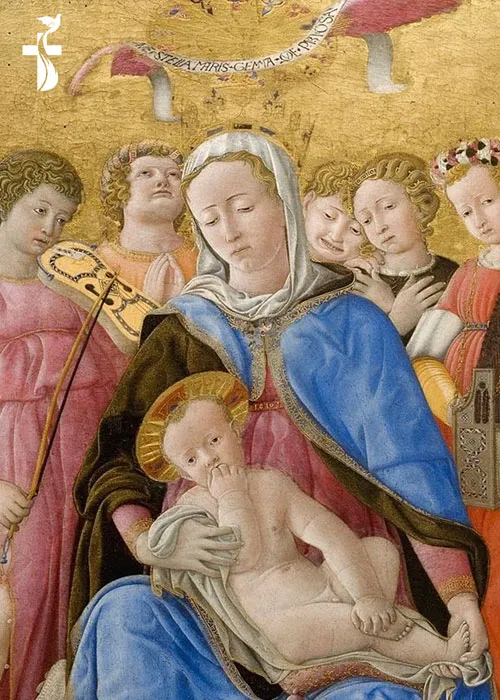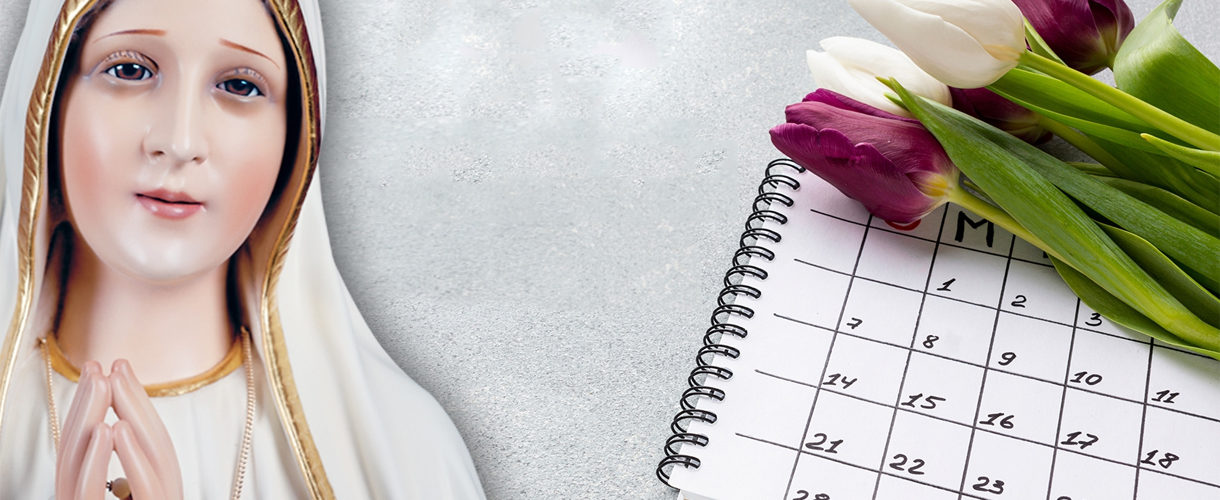
Our Lady Of Humility
Country :
Year :
To prepare Mary as a proper dwelling for His Son, God preserved her from all stain of either hereditary or voluntary sin. To her did the Word of God submit Himself in loving obedience; and hers was the grace of standing with Him on Calvary, His companion in the Redemption of the world. Through her Assumption into Heaven and her Coronation, there as Queen of Angels and Saints was the saga of the maid of Nazareth brought to its solemn and joyous consummation, unique in the history of man.
We are dazed at the thought of the graces God gave Mary; we do not understand them; we catch a shadow of their splendor, Mary saw them clearer and understood them more fully – how much her nothingness owed to God’s greatness. That is why she cried out, “My soul magnifies the Lord…and from henceforth all generations shall call me blessed…for He that is mighty hath done great things to me.” When we pray the Magnificat, we express not only the greatness of God but also the humility of Mary: — without Me you can do nothing. Anything good, holy, or sanctified which a creature does, is done through God. A creature’s work is to adapt to God’s wishes; to remove obstacles of grace in its soul. In this basic law of the divine economy we see clearly Mary’s greatness of life, and we comprehend the grandeur of her humility. Whenever, there is evidence of the grace of God lifting up, transforming, magnifying a creature, there is also evidence of the humility of that creature. As no one else has known or admitted its relationship to God in complete dependence on Him, like Mary, so no one else has enjoyed the grace of God; because she offered no opposition, but transformed herself to the grace working in her. Her Fiat to the Angel Gabriel was the momentary expression of her life-long hymn to God. Apart from Christ, we have no better model of humility than Mary, in her total submission to God at the Annunciation, her loving service to her cousin at the Visitation, her ready submission to the Jewish Laws in the Purification; but perhaps more striking, her part in the marriage feast at Cana – a simple story as St. John tells in his Gospel, but Mary was a significant part in it. Christ had shortly left home – this was their first meeting in public life; surely her Mother heart was bursting with questions to ask Him: about John the Baptist, His motley group of followers, about the immediate establishment of His Messianic Kingdom – but who was she to question HIM? The Gospel paints her rather in the role of a servant; she noticed that the wine was exhausted, told her Son and occasioned His first miracle.
There are not many acts of Mary recorded in Scripture; but from this one we gain a tremendous insight into her humility; this is as St. Thomas says, subjecting oneself to what is God in our neighbor.
Mary knew her own prerogatives – that of all men, God had favored her. She surely wanted only to engross herself in watching, listening to, contemplating her Divine Son, yet she curbed this desire to do good to neighbors. “Whatsoever you do to the least of my brethren you do to Me.” This is Mary in her role of Handmaid of the Lord. In mothering Gods son, Mary fulfilled God’s plan for her.
Each of us has received a special call from God. We are called by a unique vocation to express some facet of God’s sanctity, we alone can express. Of ourselves we are helpless to achieve that expression and are unable to place even one act of ours toward that end. But we can cooperate with God – let Him lift us up, magnify us, transform us so that we will be perfect even as our Heavenly Father is perfect.
Just as through her humility Mary fulfilled God’s divine plans for her, so we too, must learn humility, if we are to let God’s grace work to its fulfillment in us.



